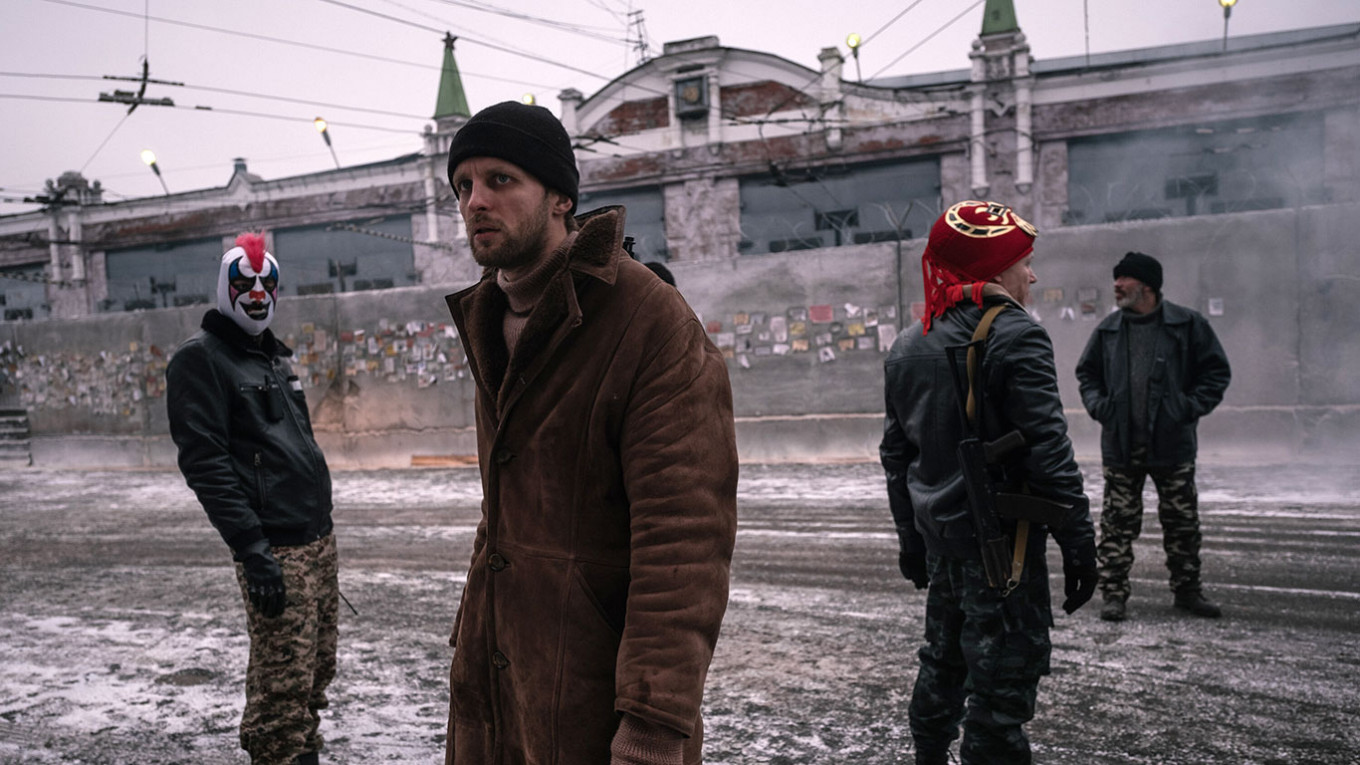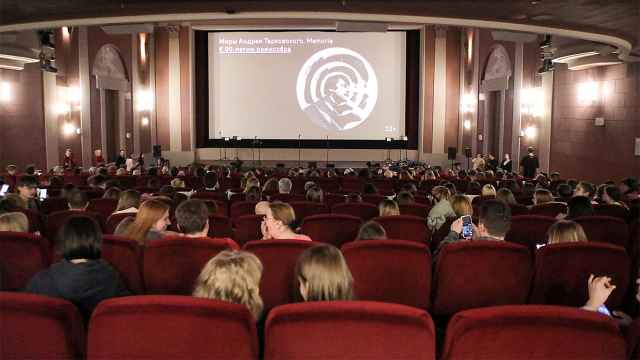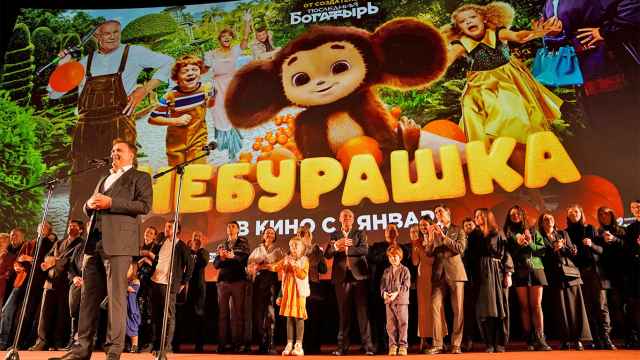Last week Kirill Serebrennikov’s “Petrov's Flu,” the director's first film since his release from house arrest, premiered with a bang at Moscow’s elegant Art Theater.
The film had already been shown to Western festival audiences. At the Cannes festival “Petrov’s Flu” cameraman Vladislav Opelyants won the well-deserved CST Award for Technical Artistry. Serebrennikov did not attend any of the European premieres since he’s still not allowed to leave the country.
Curtain-raiser
As the cast and other Russian film stars strolled and posed for photographs on the red carpet, an accordion player appeared out of nowhere to play a virtuoso version of “Marusya Raz, Dva, Tri” in the center of the exquisite hall. Guests pulled out their phones and began to film the performance before realizing that the musician was Aidar Salakhov, one of the film’s composers who also played the accordion player in a scene in the film.
Before the screening, the programming director of the theater, Stas Tyrkin, greeted the audience in a video message from Venice where the film festival was taking place. Serebrennikov and the full cast took to the stage along with Alexei Salnikov, author of the novel “The Petrovs In and Around the Flu” that was the basis for the movie.
Serebrennikov told the audience, “You can see that we really enjoyed ourselves during the filming. We loved each other and had a lot of fun. I hope you feel this atmosphere of true love, camaraderie and mutual support.”
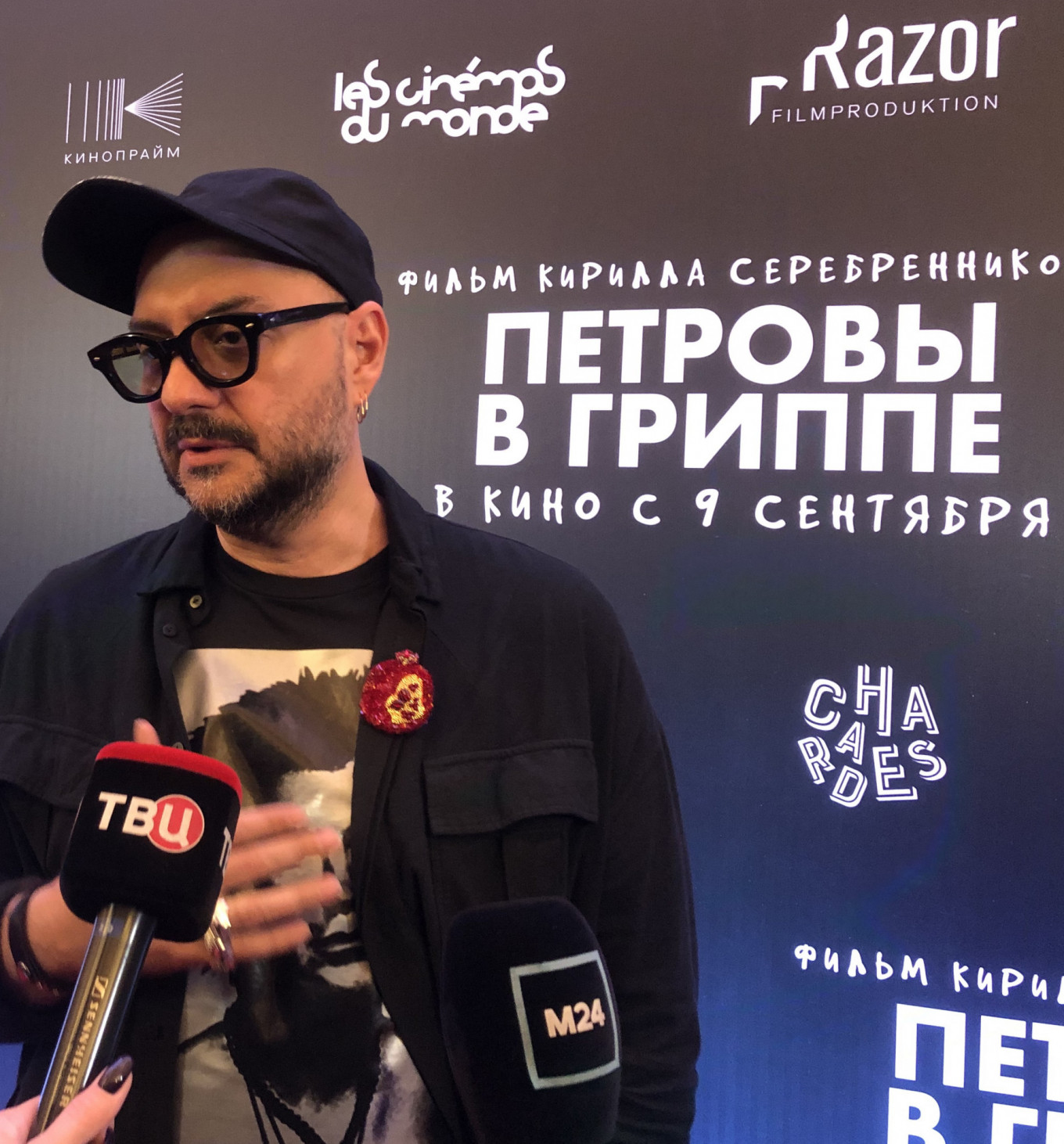
He added that the strangest thing about the film was that everyone is coughing and yet no one is wearing a mask, since the film was shot before the pandemic when life was different. At the end Serebrennikov asked Ukrainian singer and star of the film Ivan Dorn to sing. Dorn started singing “Happy Birthday” to the director — Serebrennikov turned 52 on September 7 — and the cast and crew joined in. The director blew out candles on a birthday cake. At least for a moment they managed to dispel the ever-present awareness of the ongoing pandemic.
Serebrennikov told the Moscow Times that the film was “a black comedy for people to have fun watching for two and a half hours. Then you go home and think about it.” He added that after the premiere he was going to the curtain call of his production of “Decameron” — another literary work about an epidemic — at Gogol Center, the theater he headed before his arrest in 2017.
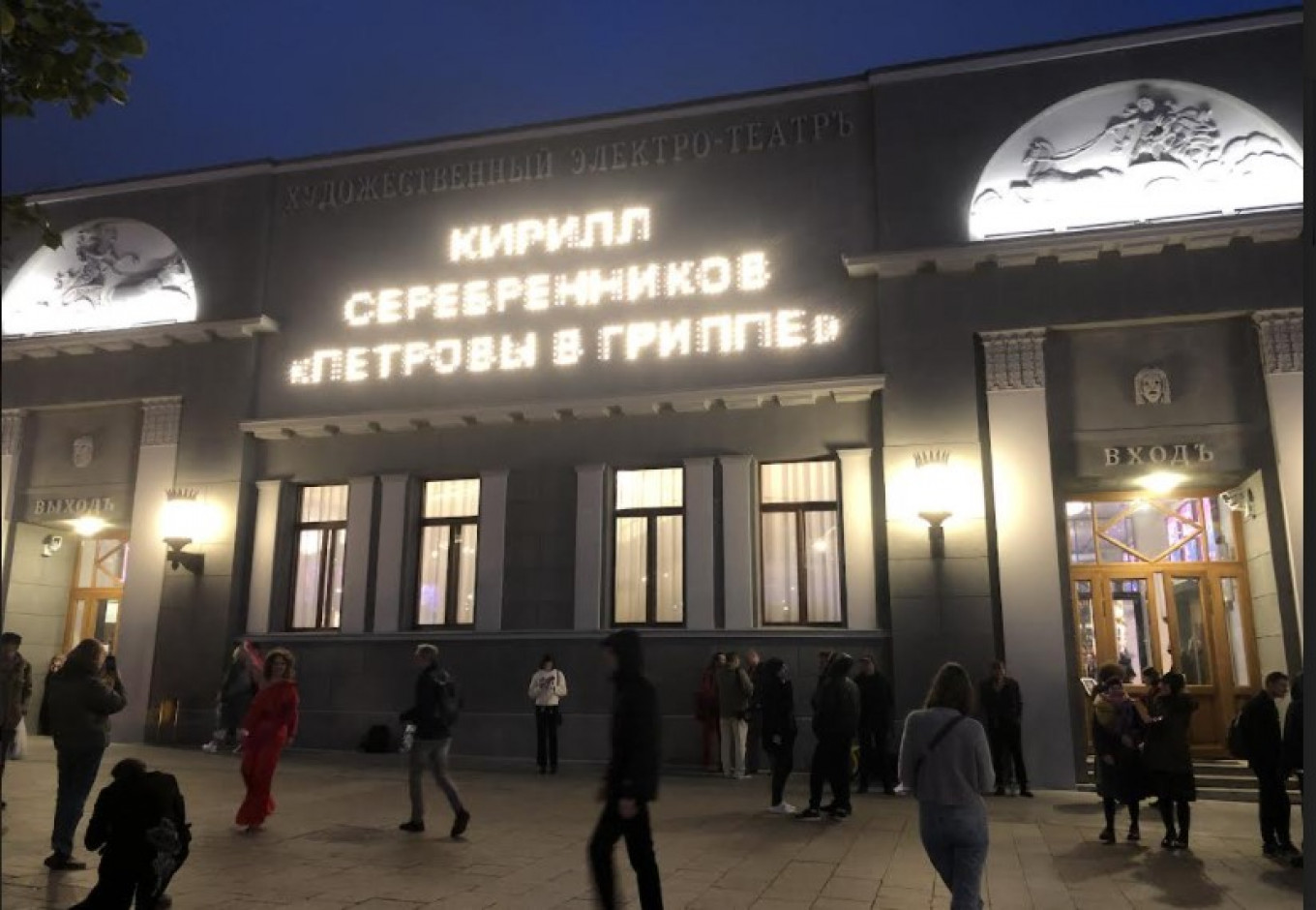
One hundred years of winter
Then the audience settled down to watch the film about ordinary people with an ordinary last name — Petrov — who live in a big provincial city — Yekaterinburg, but without any identifying landmarks. It could be anywhere. Time stands still in the snow-covered streets, cars are battered, furniture squalid and houses shabby. But the residents don’t fight against their despair or complain that they can’t move up the ladder of success. They are preoccupied with the flu and the hallucinations it seems to cause. Early on in the film, reality merges with their visions.
It’s funny and dark at the same time. Petrova (Chulpan Khamatova) works in a library, hunts for maniacs and slashes throats after hours — or does she really? We’ll never know. Her estranged husband Petrov (Semyon Serzin) takes apart old cars at a service station, draws comics at night and sees UFOs. He becomes the real-life model for a literary character created by the archetypical loser writer Sergei (Ivan Dorn). The perennially drunken Igor (Yuri Kolokolnikov) or Ayd (Hades in Russian) follows Petrov throughout the story — but is he real?
It’s also hard to say which year is on screen — people already have cell phones, but the city looks like the 1990s. The Internet is first mentioned in the middle of the movie, but technology plays no part in the city’s life. The only one who escapes this swamp is a dead man — played by the rapper Husky — who gets up from his coffin. His getaway down crooked streets is accompanied by one of his songs, which suggests that the film action takes place today; Husky rose to fame after 2016. But before the scene of him escaping the coffin, there was a long flashback to the late Soviet era with the same snow and lack of prospects. Time seems to be on a loop.
The circular structure and Opelyants’s camera hold the parts of the film together, especially in a brilliant 18-minute unbroken shot that follows Petrov through several scenes. But the film doesn’t come to a tidy end. Nothing is explained, and the story could go on forever.
“Almost no one makes conceptual films like this”
The audience at the Art Theater seem to like the film, although some didn’t find it easy to describe. Actress Liya Akhedzhakova, who memorably starred in Serebrennikov’s 2006 absurdist dramedy “Playing the Victim,” called the director “very talented” and said the new film was “complex.”
Varvara Shmykova, who played the infant Petrov’s mother in a flashback to his Soviet childhood, said hadn’t had trouble with the role since she had her mother in mind. “This is the first time I’ve seen the movie, and I’m totally delighted,” she told The Moscow Times. “It’s hard to formulate my response right after seeing it, but the feeling of complete surrealism is exactly what I expected,” she said.
Designer Roman Uvarov said “Petrov’s Flu” didn’t look like a Russian movie. “Almost no one makes conceptual films like this in our country… I’ve known Kirill (Serebrennikov) for a long time, and I think he’s growing with every new film,” he said.
Actress Isabelle Eidlen told The Moscow Times that, “There’s no end here. The film is awesome — it’s got amazing effects, which gives hope for our cinema… It’s really interesting to look at human fears and interests, not only at the grime but through a dark lens,” Eidlen said. She too praised the cinematography and the image of a time loop.
“We’re all down with our own flu, which may or may not be cured. Everybody has their own disease, but only you can understand it — it’s your book or film, your dark side… but for some people, it doesn’t matter,” she said. “They can be sick with a temperature of 40°C and still smoke a cigarette and wash it down with vodka.”
A Message from The Moscow Times:
Dear readers,
We are facing unprecedented challenges. Russia's Prosecutor General's Office has designated The Moscow Times as an "undesirable" organization, criminalizing our work and putting our staff at risk of prosecution. This follows our earlier unjust labeling as a "foreign agent."
These actions are direct attempts to silence independent journalism in Russia. The authorities claim our work "discredits the decisions of the Russian leadership." We see things differently: we strive to provide accurate, unbiased reporting on Russia.
We, the journalists of The Moscow Times, refuse to be silenced. But to continue our work, we need your help.
Your support, no matter how small, makes a world of difference. If you can, please support us monthly starting from just $2. It's quick to set up, and every contribution makes a significant impact.
By supporting The Moscow Times, you're defending open, independent journalism in the face of repression. Thank you for standing with us.
Remind me later.


